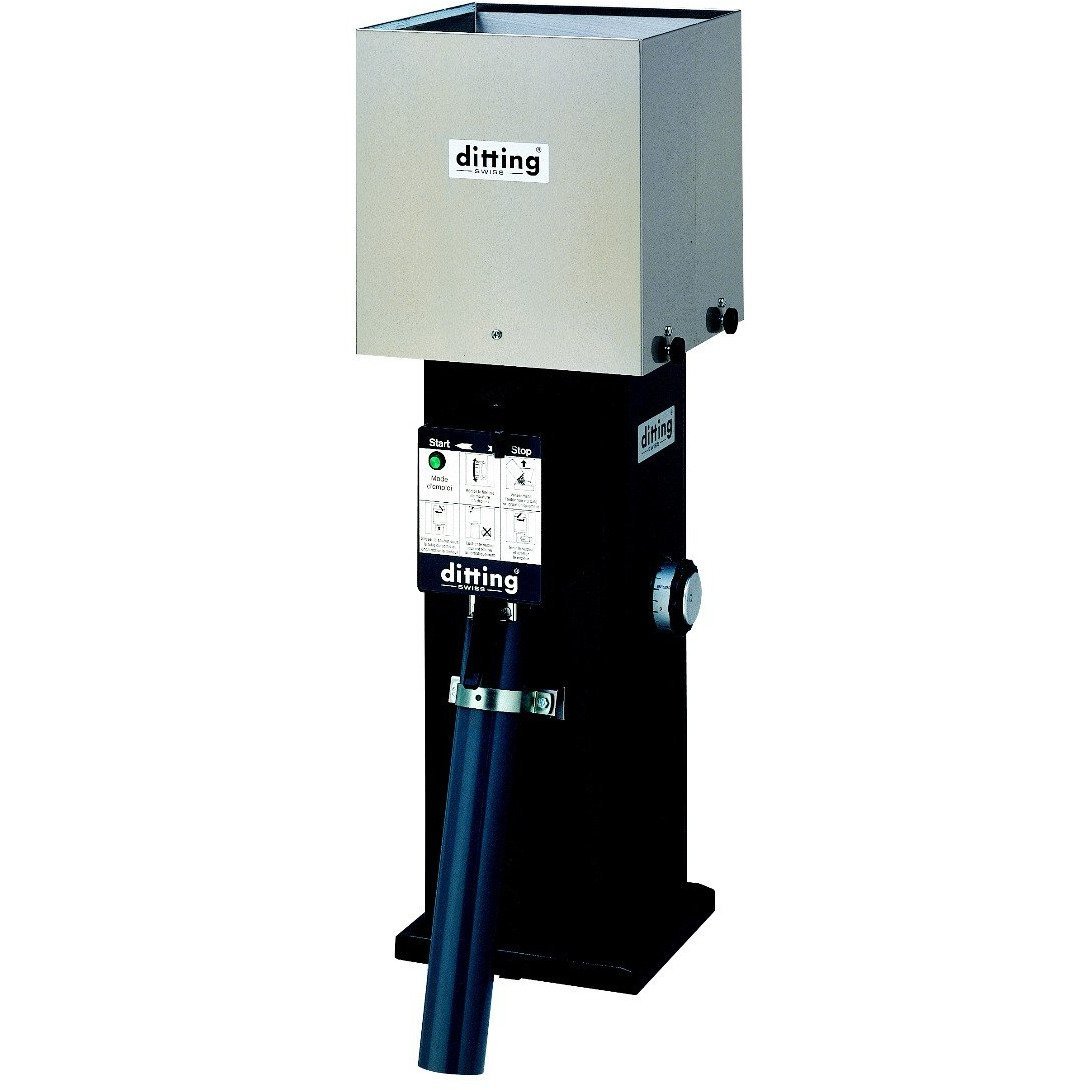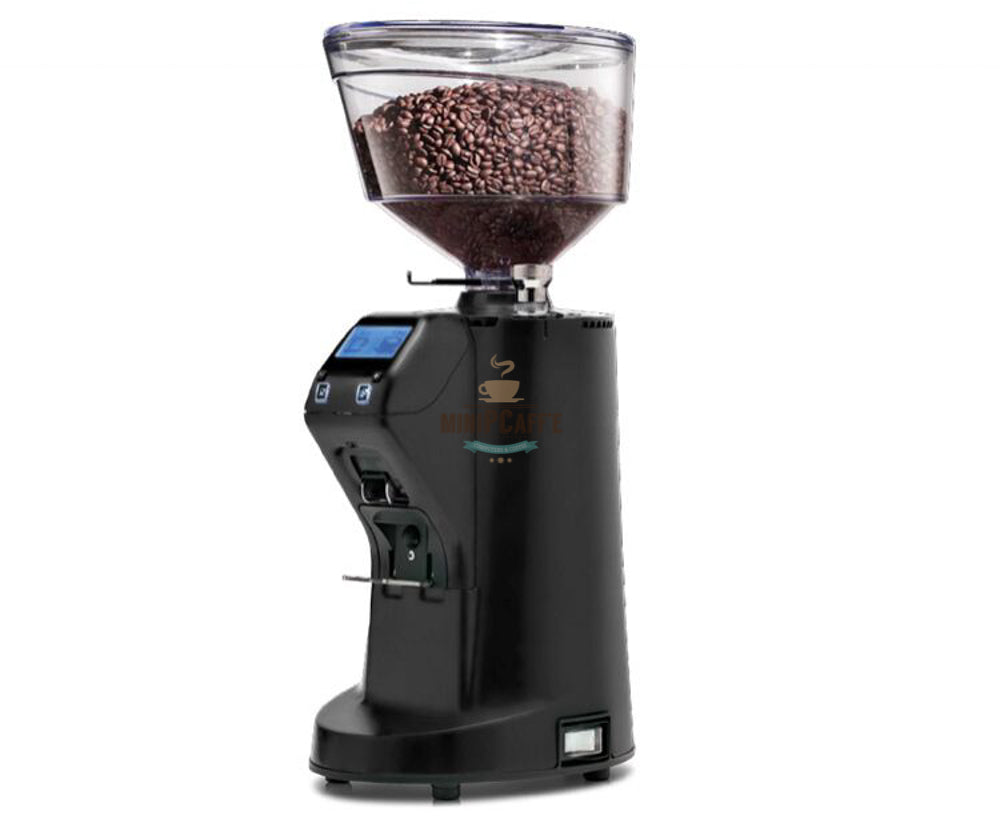Industrial Coffee Grinder: A Full Overview for Large-Scale Brewing
Industrial Coffee Grinder: A Full Overview for Large-Scale Brewing
Blog Article
Industrial Coffee Mill Overview: Increase Efficiency and Top Quality
In the affordable landscape of coffee production, picking the best industrial coffee mill plays a pivotal role in enhancing both efficiency and product top quality. Comprehending the nuances of various grinder kinds and essential attributes-- such as customizable work settings and robust building-- can substantially influence the last taste account of the coffee.
Understanding Grinder Kinds
When choosing an industrial coffee grinder, comprehending the various kinds readily available is vital for optimizing both taste extraction and operational performance. The 2 primary kinds of mills are blade mills and burr mills. Blade mills utilize sharp blades that cut coffee beans into inconsistent sizes, resulting in uneven removal and potentially unwanted flavors. While blade mills are typically more appropriate and affordable for small operations, they are generally not advised for industrial usage.

Eventually, picking the right kind of grinder is indispensable to maintaining top quality and performance in coffee manufacturing, making it essential for businesses to invest in high-quality burr grinders for optimal outcomes.
Secret Attributes to Think About
Picking a commercial coffee grinder calls for mindful factor to consider of a number of vital features that can substantially influence both efficiency and the general coffee experience. One of the primary aspects to evaluate is the grinding device. Burr mills are generally chosen over blade mills, as they supply a regular work size, which is essential for ideal extraction and flavor.
Another vital function is the grinder's capacity. Depending on the volume of coffee you need to process, choose a version that can manage your requirements without sacrificing rate or top quality. In addition, think about the grind setups supplied. A versatile grinder with multiple setups allows you to customize the work size to various developing techniques, boosting the coffee's taste account.
Review the mill's sound level, specifically in a busy café or manufacturing atmosphere, where too much noise can be disruptive. Spending in a grinder that balances these attributes can significantly boost both functional effectiveness and the quality of the coffee served.
Optimizing Grinding Refine
To achieve the finest results in coffee prep work, enhancing the grinding process is important. The work size significantly influences extraction, flavor, and overall quality of the brewed coffee.


Furthermore, monitoring the grinding speed can maximize the procedure. Slower grinding usually generates much less warmth, protecting delicate tastes and fragrances. Conversely, quicker grinding may generate excessive heat, negatively impacting the coffee's quality.
Upkeep and Care Tips
Correct maintenance and care of industrial coffee mills are necessary for making certain ideal performance and durability. Routine cleansing is the structure of upkeep; deposit accumulation can affect taste and grinding efficiency. It is a good idea to clean the mill after each usage, cleaning down the outside and eliminating any type of coffee grounds from the burrs.
Furthermore, evaluate the grinding burrs for wear and tear. Dull burrs can endanger grind consistency, so they need to be changed as needed. Industrial Coffee Grinder. Regularly calibrating the mill is likewise vital, as this keeps the wanted grind size for various brewing methods
Lubrication of moving components ought to be executed according to the manufacturer's specifications, as this lowers friction and prolongs the life of the tools. It is vital to make use of food-grade lubes to make sure security and conformity with health and wellness policies.
Last but not least, keep the mill in a stable and completely dry environment to stop rust and corrosion. By adhering to these upkeep and care ideas, drivers can improve the effectiveness of their commercial coffee grinders while guaranteeing top quality outcome and prolonged operational life.
Return on Financial Investment Evaluation
Examining the roi (ROI) for commercial coffee mills is essential for organizations looking for to enhance their coffee manufacturing abilities. A detailed ROI analysis aids identify the financial feasibility of spending in premium grinders, enabling services to evaluate the preliminary costs against prospective gains.
Evaluate the acquisition rate of the grinder, including installation and any essential adjustments to existing framework. High-performance check it out mills commonly lead to reduced grinding time and increased throughput, which can considerably boost efficiency.
Furthermore, think about the influence on product quality. Industrial Coffee Grinder. Superior grinders produce an even more constant work dimension, which can improve taste profiles and customer contentment, ultimately driving sales. By check this increasing the top quality of the end product, businesses can warrant higher prices, leading to boosted profits
Verdict
In recap, a commercial coffee grinder plays an essential function in boosting both efficiency and product high quality within coffee manufacturing. Ultimately, the critical financial investment in a reputable mill adds significantly to enhanced profits and competition in the coffee industry.
In the affordable landscape of coffee production, choosing the right industrial coffee grinder plays a pivotal function in improving both effectiveness and item top quality. The two key types of mills are blade mills and burr mills. Within the burr mill category, there are level burr mills and conelike burr mills, each with its benefits. Burr grinders are typically chosen over blade mills, as they provide a regular work size, which is critical for optimal removal and taste.
In recap, a commercial coffee mill plays a crucial role in improving both effectiveness and product quality within coffee production.
Report this page